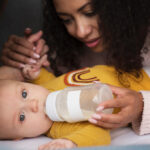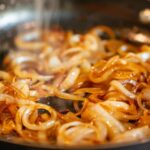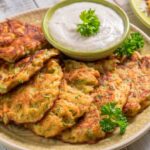Introducing solid foods to your baby is an exciting time for South African families. It marks a significant milestone in a baby’s growth and development. However, it’s crucial to proceed with caution as not all foods are suitable for babies, particularly those under one year of age. Here are 20 foods that South African moms should avoid feeding their babies to ensure their health and safety:
1. Honey
Babies under one year should not consume honey due to the risk of botulism, a rare but potentially fatal illness.
2. Cow’s Milk
Stick to breastmilk or formula until your baby is at least one year old. Cow’s milk can stress a baby’s kidneys and doesn’t have the right balance of nutrients they need.
3. Sugar and Sweeteners
Adding sugar or sweeteners to a baby’s food can lead to a preference for sweet foods, potentially causing obesity and dental problems later in life.
4. Salt
High sodium intake is harmful to babies. Their kidneys cannot handle too much salt, which is why it’s better to avoid adding it to their foods.
5. Whole Nuts and Seeds
These pose a choking hazard and should not be given to children under the age of three. Instead, nut butters or smooth pastes can be introduced in small amounts.
6. Popcorn
Another choking hazard, popcorn should be avoided for babies and toddlers due to its size and hardness.
7. Raw and Hard Vegetables
Vegetables like carrots and beetroot should be cooked and pureed or mashed to prevent choking.
8. High-Mercury Fish
Fish such as swordfish, king mackerel, and tilefish are high in mercury and should be avoided. Opt for lower-mercury options like haddock or trout.
9. Unpasteurized Foods
Unpasteurized dairy products and juices can contain harmful bacteria and should not be given to babies.
10. Small, Hard Foods
Foods like raw peas, berries with seeds, or candies can easily cause choking.
11. Tea and Coffee
Caffeine is a no-go for babies as it can cause sleep disturbances and other side effects.
12. Spicy Foods
While introducing a variety of flavors to your baby is beneficial, overly spicy foods may be harsh on their developing digestive system.
13. Grapes and Cherry Tomatoes
Unless cut into small pieces, these can be a choking hazard. Always cut them lengthwise into quarters before serving to your child.
14. Processed Meats
Sausages, bacon, and other processed meats are high in sodium and additives and should be avoided in early childhood.
15. Soft, Mould-Ripe Cheeses
Cheeses like brie and camembert can contain listeria and are best avoided until older.
16. Sticky Foods
Peanut butter and marshmallows can stick to the throat and are potential choking hazards.
17. Large Chunks of Meat or Cheese
Big pieces can be tough to chew. Make sure to cut meat into tiny, manageable pieces or offer it in a shredded form.
18. Fruit with Pits and Seeds
Fruits such as cherries and plums should have their pits and large seeds removed, and the fruits should be chopped to prevent choking.
19. Raw Shellfish
This can cause severe allergic reactions and introduce harmful pathogens.
20. Biltong
Although a favorite snack among South Africans, biltong can be tough and salty, making it unsuitable for young children.
When introducing solids, it’s crucial for South African moms to go slow and ensure that foods are safe and appropriate for their baby’s stage of development. Remember that each baby is different, and when in doubt, consult your paediatrician or a child nutrition expert to get advice tailored to your baby’s needs. This approach not only keeps dietary introductions safe but also exciting and healthful, laying the foundation for good eating habits that last a lifetime.








